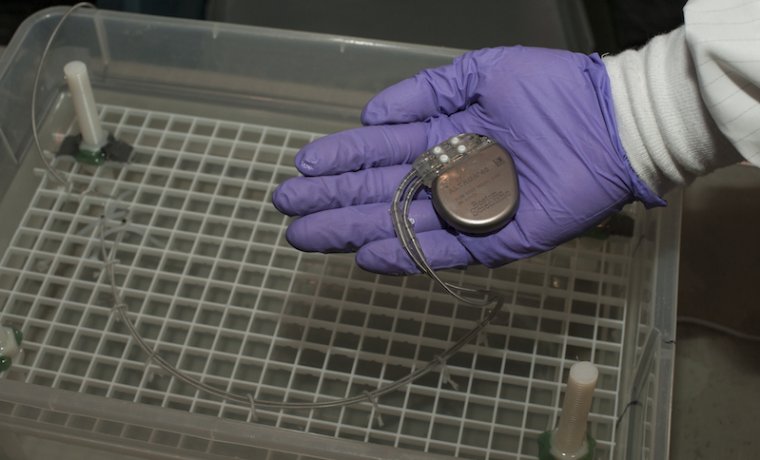
Enlarge (credit: US Food and Drug Administration)
Pacemakers are devices that are implanted in the chest or abdomen to control life-threatening heartbeat abnormalities. Once they're in place, doctors use radio signals to adjust the pacemakers so that additional major surgeries aren't required. A study recently found that pacemakers from the four major manufacturers contain security weaknesses that make it possible for the devices to be stopped or adjusted in ways that could have dire effects on patients.
Chief among the concerns: radio frequency-enabled pacemaker programmers don't authenticate themselves to the implanted cardiac devices, making it possible for someone to remotely tamper with them.
"Any pacemaker programmer can reprogram any pacemaker from the same manufacturer," researchers from medical device security consultancy WhiteScope wrote in a summary of their findings. "This shows one of the areas where patient care influenced cybersecurity posture."